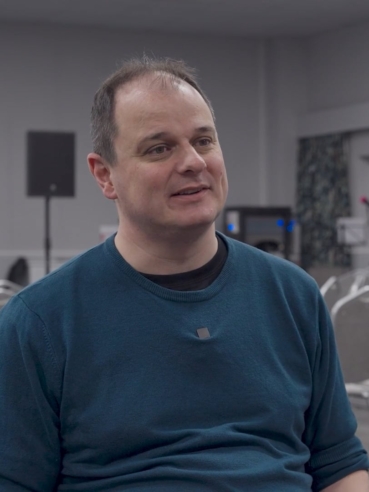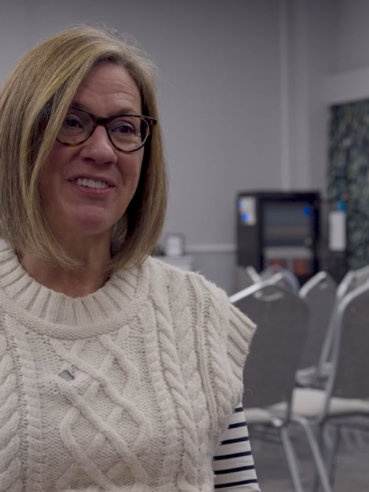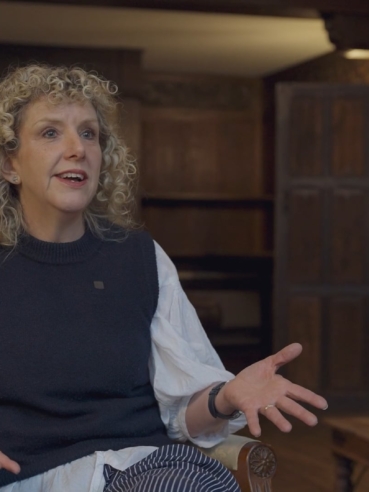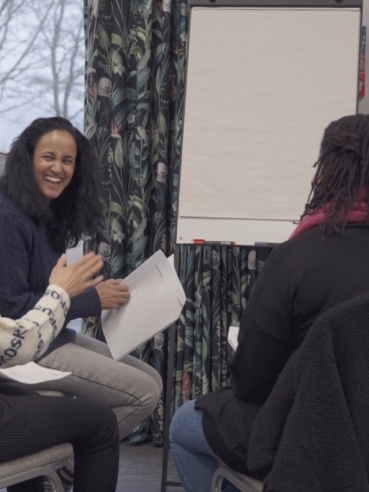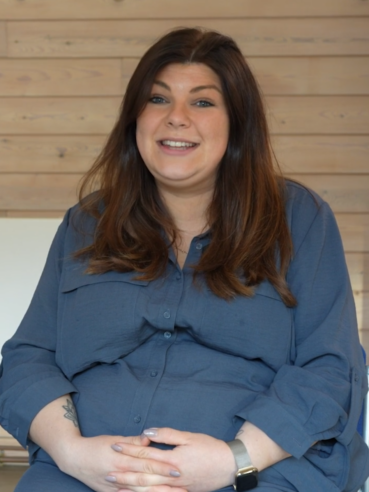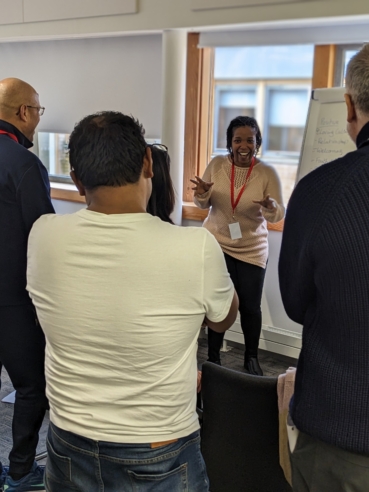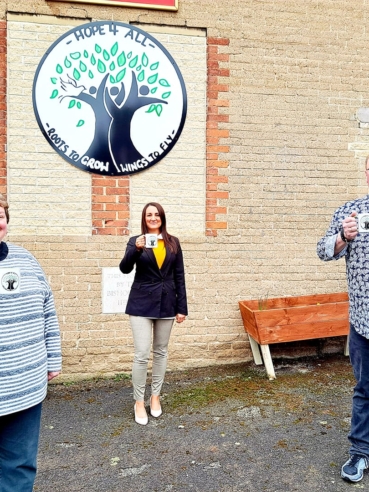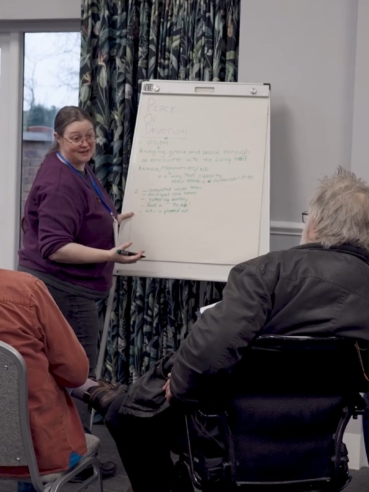Rather than offer up a franchise or step-by-step model, our research has led us to create an environment in which lay planters can grow to fulfil God’s calling on them, to start a new worshipping community alongside others who are doing the same.
Adding capacity & releasing imagination
A second major point of learning from this first year is the difference that a partnership between Myriad and a local church and diocese to form a Training Hub can make in releasing missional potential. But we have also learned the challenges involved in doing this and it’s given us an invaluable window into what’s happening across the Church.
I think that ordained leaders are caught between two realities; they’re telling us they’re often feeling overwhelmed and stressed by all the day-to-day tasks they’re trying to deal with, and yet, they see that God is doing something new with the Church as more lay planters step forward. Church leaders are eager to support them, if only they had the tools and the capacity.
It’s been a challenge to find churches that have the time and conviction to create resources for lay planters as a part of their calling. Our contribution has been to do the heavy lifting, and put the tools in a church or diocese’ hands so that they can fulfil their calling.
One church leader said to us ‘How did you know that we would need this? Without Myriad we couldn’t have provided the support these teams needed and now we have six teams planting new church communities’. Part of Myriad’s role is to hold out a vision to the Church that ‘we can do this’, and we can do it well, with care and in a way that is achievable. So our position is of one standing in the tension of the ‘now and not yet’ that the whole Church is living with around lay planting.
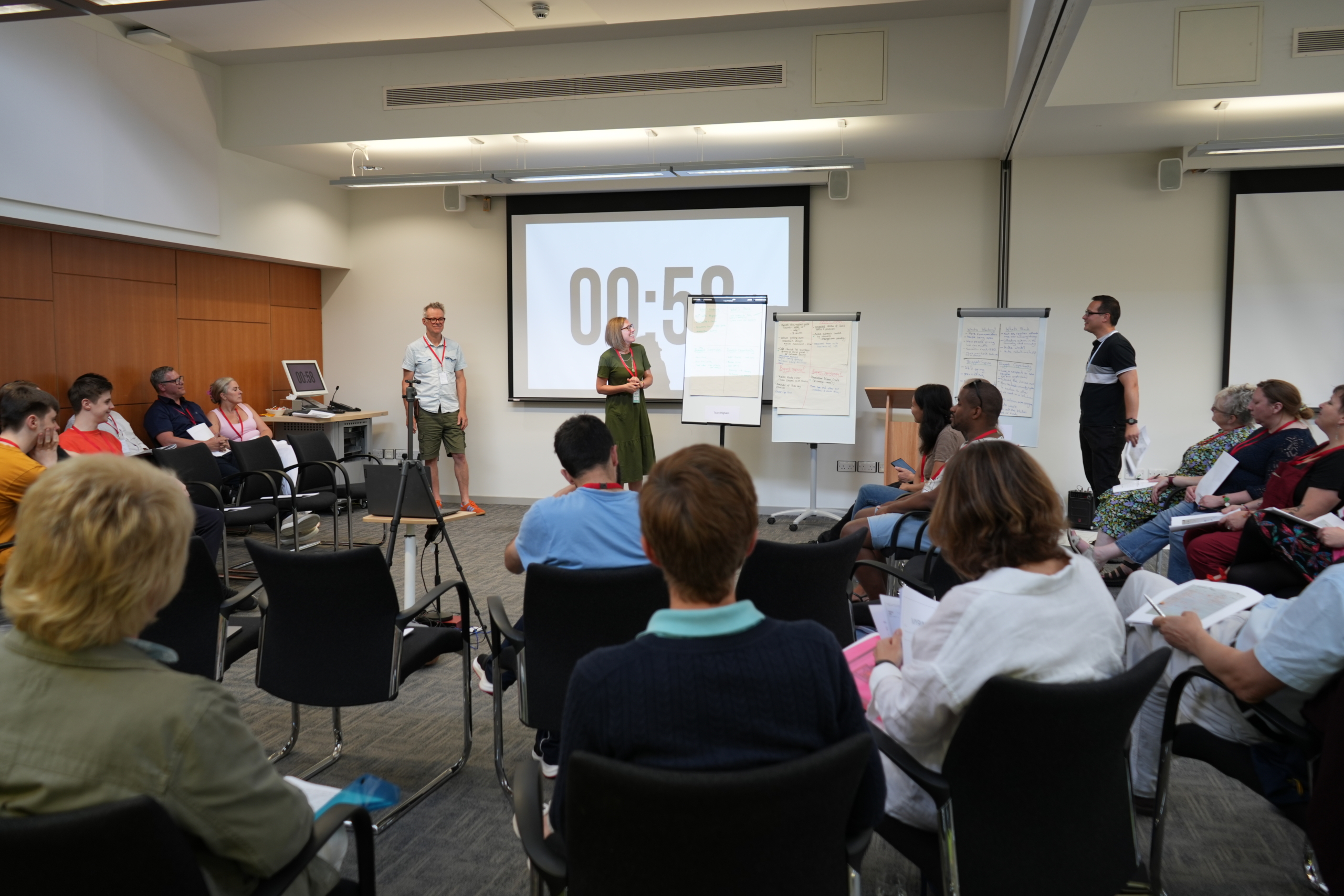 Sharing good news
Sharing good news
We’ve learnt that there’s a lot of anxiety around the Church about new forms of church. It’s understandable to conclude that any investment in new worshipping communities implicitly criticises the established Church and might even suggest that we want nothing to do with it. A priority for us is to encourage an understanding of the partnership between the established Church and the new worshipping communities that are being formed — that this is not an activity of critique, but a new avenue of growth available to all.
A key piece of work on this is around the role of the ordained minister who oversees the lay planting teams. When sharing with church leaders and diocesan leadership that we want to invest in the clergy, to enable them to step into this role of oversight ministry, people have began to recognise that CCX is looking to serve what God is doing in the Church, rather than undermine the established Church in order to create new communities. We believe the new is emerging from the old, rather than it being an either-or, mutually exclusive experience.
Clergy are the key gatekeepers of this. Those that are partnering with us and receiving investment in how to carry out oversight of lay planters have responded superbly. They feel this is a role that excites them. Before the investment was there, many held fears, they felt unsupported, they didn’t feel competent to have oversight of lay ministry because they had never been trained in it.
We’ve developed an oversight ministers course in partnership with CPAS that offers a good deal of flexibility – it can be completed in a single day or over three different sessions. It enables people to have a safe space to think through topics like, ‘What does this kind of ministry look like?’, ‘What is an episcopal priest?’, ‘Can you share the cure of souls with lay people?’. We examine what a healthy oversight ministry looks like, in terms of accountability and support and encouragement and challenge. We look at practicalities around safeguarding; how you oversee something that you don’t actually see in person.
Within the offer of the Oversight Pathway, I think there’s a recognition that this work we’re engaged in is a partnership. It’s not an abdication, nor the giving up of a particular tradition, it’s an expression of the fullness of what the parish ministry and the priestly ministry in the Church of England was always intended to be.
Clergy are rarely trained in how to build teams, how to oversee people and how to release them into new ministries that they as clergy are not directly leading. The opinion we’ve often heard is, ‘Lay people were always meant to just help us, rather than us to empower them.’ So, there’s been a real shift in understanding of ordained leadership from those who’ve undertaken this training.
It should also be said that the encouragement of lay people leading new worshipping communities does not result in the dumbing down of theology and teaching, nor is less attention paid to safeguarding. Lay planting should not result in a decline in good governance and processes. The Myriad Learning Pathway seeks to establish good relationships between new worshipping communities and established parish churches, to outline what good practice looks like.
An invitation to experimentation
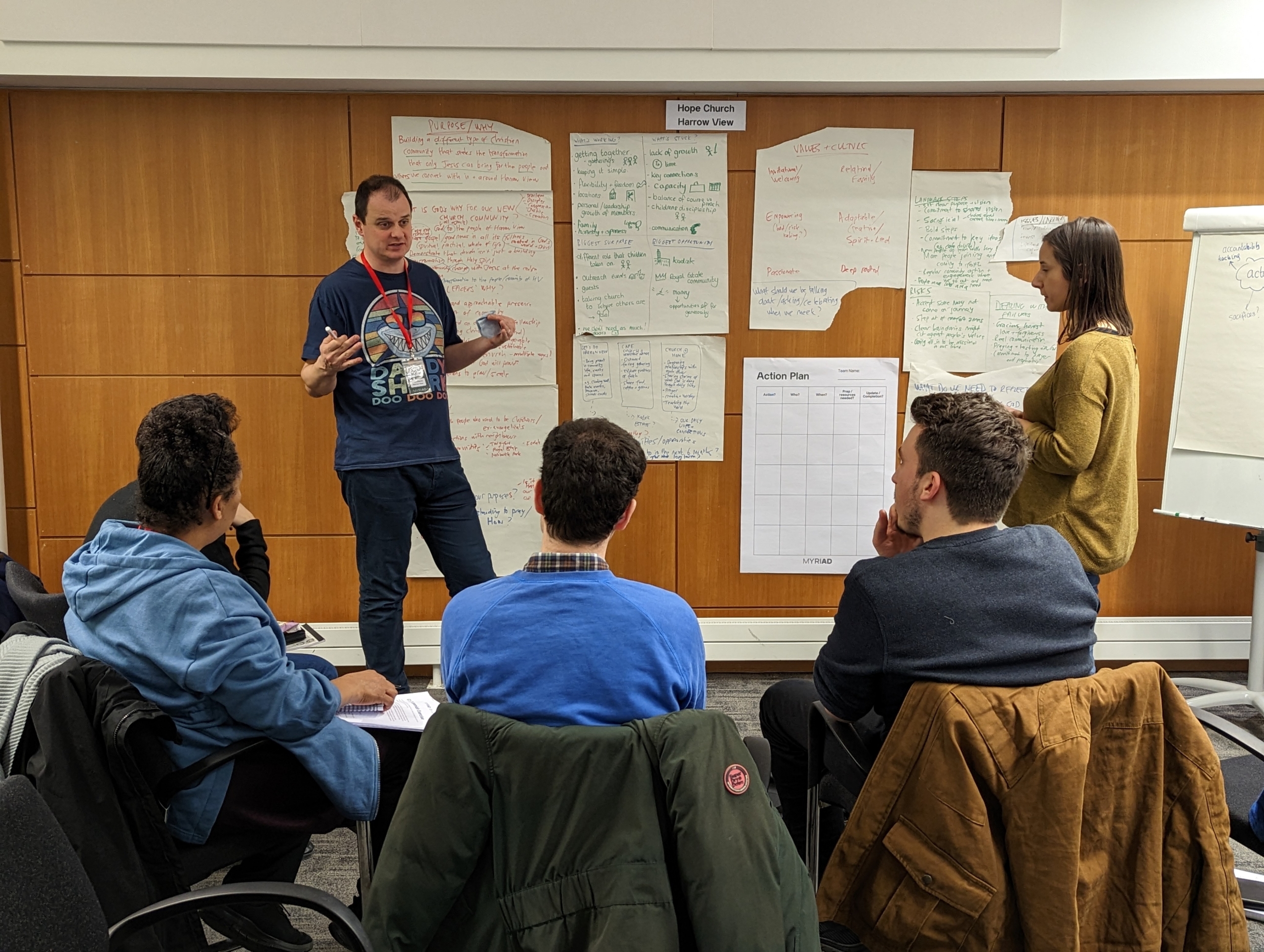
We’ve recognised the value of embracing a language of ‘experiment’, which relates to our location in this transitional time for the Church – we are finding our way through experimentation.
When we use that language, people relax, recognising this isn’t a fixed path everyone will have to undertake within a diocesan strategy. We think God is doing a new thing in many people – Listening to the Voice of the Lay Planters indicated this. By creating the Learning Pathway, we hope to give an easy opportunity for people to say ‘Yes, God is doing this in me’, rather than those people feeling that they must await a Diocese and Leadership policy to emerge, which everyone has to partake in.
By creating a point of experiment that asks ‘Who would like to come and do this’, or, ‘Who is already stepping out and would like support’, we’ve enabled people to relax and recognise nothing is being imposed, it’s invitational.
The breadth of the contexts we’re working across is also providing valuable insights – geographically, socially, within varying levels and type of church, including diocesan teams. In each context they’re using different language, and we’re recognising a need to draw on different stories to illustrate what’s taking place within that variety of contexts.
The shape of our Learning Pathway Gatherings has had to adjust and flex to reflect the needs of those we are serving. We’re recognising that the people receiving this call are wonderfully diverse; they might be retired, acting on a recent recognition that they have an opportunity to lead and contribute to the future of the church, or they could be a young woman in her twenties. They might be a long-standing Christian, or a recent convert from Islam. We’re working with such a broad set of teams.
What I love about it is the rich diversity of lay leaders coming forward; there are a lot of women who are leading this, and there are a lot of people who haven’t engaged in further education. We’re witnessing people saying, ‘I could do something in my context’, reframing the conversation around who can lead, and what a leader looks like.
As a result, the central criteria we ask leaders to fulfil in order to participate in the Myriad Learning Pathway are broad – we want this opportunity to have a diverse uptake. Leaders must:
- Articulate a call, to reach new people with the good news of Jesus Christ.
- Have a team, to gather other people together to embark on this journey. We see that as a confirmation that God is shaping them as a leader, who’s able to bring people together around a calling. A Myriad team is only three-to-five people, and it might be only two people to start with.
- Find an oversight minister who is willing to support them and act as reference for them. Do they have a calling that has been recognised by the church?
I think another lesson is around the capacity of lay people. We have often heard understandable questions around lay planting at this scale; why would lay people do this in the midst of their busy lives? What is it that enables them to do this?
A primary reason for why we require Learning Pathway participants to have formed a team is that, if they’re acting on their own alongside full-time work, this is something that is likely to be overwhelming, beyond their capacity. By building a team, we share the load. We encourage them to think through who has capacity to handle things like administration and organisational aspects of a plant. We want to ensure that its life-giving, that all our lay leaders thrive in their families, in their work, and in their church planting.
Another key term for us has been ‘bivocational’; many of our leaders are called to multiple callings, their workplace as well as to their church. How you begin to weave those together is important and how much time you have to give to each of those is something that they have to discern.
I think that’s also one of the things that the Church is learning – that the single leader, a gifted person who can do everything, is not a healthy pattern of leadership for the Church to pursue at scale. We sense this is another thing God is doing with his Church, giving a new shape of leadership, and so insist that lay leaders start with a team for the Myriad Learning Pathway. 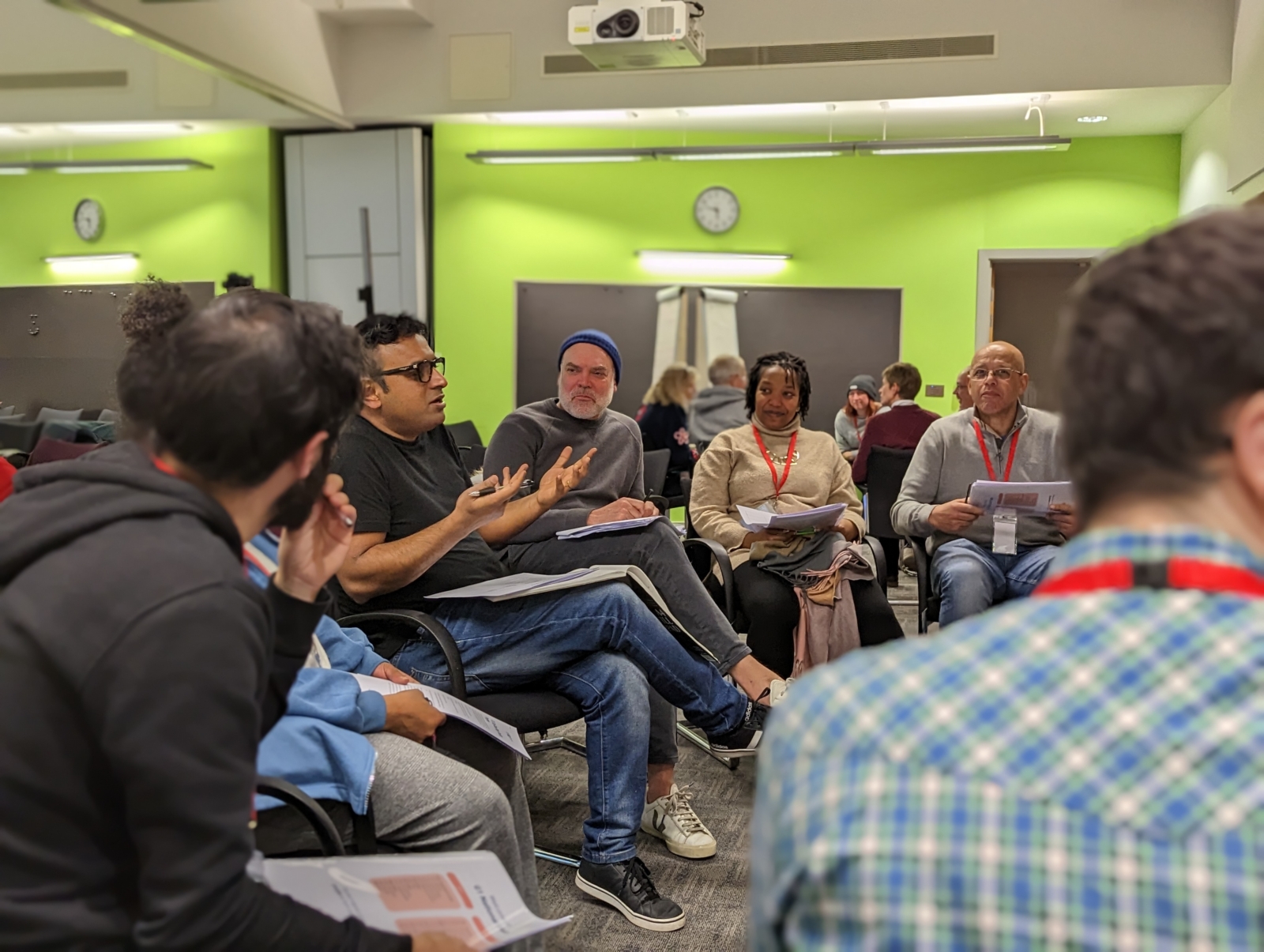
Thank you
Finally, to each of those who have started to do this with us – thank you. There is such a gift in your willingness to go on this journey, to learn how to live differently and to be Church differently.
We’re also hugely grateful to those dioceses that have been willing to join us and enable all this to take place – those that have already started and those that are about to begin in 2024. Your assurances to churches across your diocese has been invaluable, helping all to recognise that this isn’t a new initiative disconnected from what God is already at work doing in a diocese. This is an expression of what God has been doing in the past, in a new way. This will never be something that we do independently, we will always look to work together with existing structures.
We’re grateful to all the clergy who have been willing to say to us, ‘I’ve never done this before’ or ‘I don’t know how to do this’. Thank you for coming with a real openness, to be willing to learn and to lead in a new way that can enable this to happen within your parish.
And we’re really grateful to the incredible people who have heard the call of God and been willing to step out and come alongside with what we’ve been doing.
All of this has required careful investment, careful thinking through of relationships between everybody who’s involved in this, exploring what people need to do this well and healthily and safely. That careful planning has been absolutely vital as we step into new territory.
If in reading this you have felt that this first year of the Myriad Learning Pathway relates to something you feel called to, we want to hear from you. Are you a diocesan leader or church leader who feels that the Myriad Learning Pathway could enable you to fulfil what you’re feeling called to in this area? We’d love to help you form a learning hub. Are you a lay person who is already leading a team, who has a sense of the call of God to start a new community – we want to support you, and are ready to link you to one of many hubs around the country to support you in this journey.



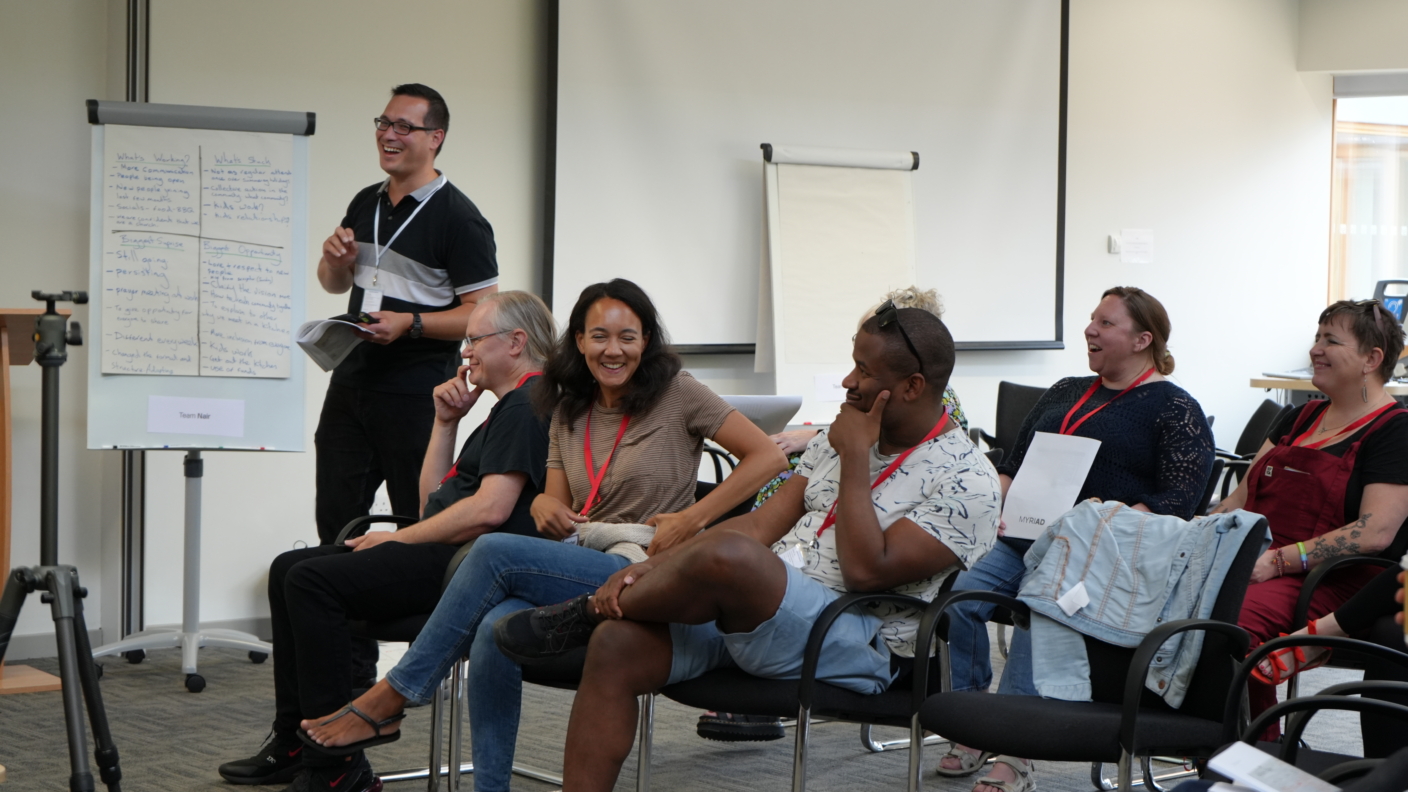
 Sharing good news
Sharing good news


